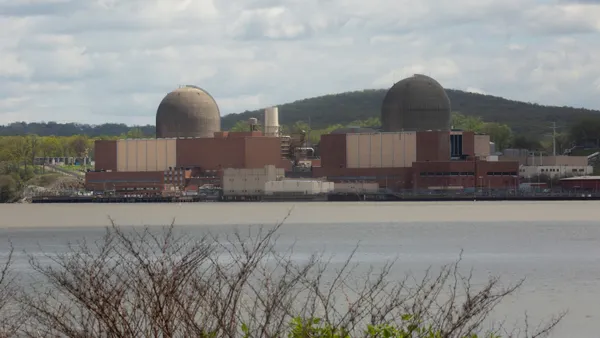Norman Bay has been confirmed as the newest commissioner of the Federal Energy Regulatory Commission (FERC) and, in nine months time, he will become the agency's new chairman.
Over a year after the White House originally tabbed Ron Binz, the former head of the Colorado Public Utilities Commission (PUC), to replace exiting Chairman Jon Wellinghoff, there is a new head of the federal agency that regulates the nation's wholesale energy markets and interstate electric transmission lines and gas pipelines.
Binz, who was attacked by industry groups, met his end at the hands of the Senate Energy Committee after coal-country Sen. Joe Manchin (D-WV) crucially refused to support his nomination.
When Wellinghoff left his post in November 2013, FERC Commissioner Cheryl LaFleur was chosen to lead the agency on an interim basis. Observers speculated over a number of candidates, with Utility Dive reporting that Norman Bay, a relative dark horse at the time, would become the eventual nominee.
In late January, the White House announced Bay's nomination for FERC chairman. After the usual political wrangling (including a bid to make LaFleur, not Bay, the new chairman), the Senate confirmed Bay's nomination on July 15 in an unusually tight 52-45 vote.
Because LaFleur was named interim FERC chair, Bay will not take up the position until next year.
Introducing Norman Bay
You probably never heard of Norman Bay before his nomination to lead FERC.

From 2009 until recently, Bay was Director of Enforcement at FERC, where he led efforts to clamp down on energy market manipulation and other rules violations under the agency's jurisidication. During that time, FERC very publicly levied multi-million dollar fines against major financial players like JPMorgan, Deutsche Bank and Barclays.
But Bay hasn't always been in the energy sector.
After coming out of Harvard Law School, Bay clerked with a judge on the Ninth Circuit Court of Appeals and later worked in the Legal Advisor's Office at the U.S. State Department. Bay became a federal prosecutor with the Department of Justice in 1989, working cases in the District of Columbia and New Mexico.
In 2000, Bay got his big break. He was named interim U.S. Attorney for the district of New Mexico, in effect becoming the first Chinese-American U.S. Attorney. Bay was nominated for the permanent position by President Bill Clinton shortly thereafter. Bay resigned in 2001 after handling the controversial Wen Ho Lee case.
After resigning, Bay spent seven years as a law professor at the University of New Mexico, teaching Criminal Law, Evidence and Constitutional Law. Bay was named Director of Enforcement at FERC in 2009. In early 2014, he was nominated for Chairman and was subsequently confirmed on July 15.
What will Bay's tenure look like?
At such a politically-charged moment in energy policy and regulation (see: EPA's Clean Power Plan), Bay's ascension to the head of FERC raises a big question mark: Who is Norman Bay and what does he stand for?
Bay's relative lack of a public record compared with more outspoken nominees such as Ron Binz and Jon Wellinghoff means he comes in to the office as a bit of a mystery.
As FERC Chairman, Norman Bay is expected to bring his expertise in criminal law and national security to bear. Strictly enforcing market regulations and bolstering security for the nation's power grid and gas pipelines will likely land near the top of Bay's priority list.
Only time will tell.














